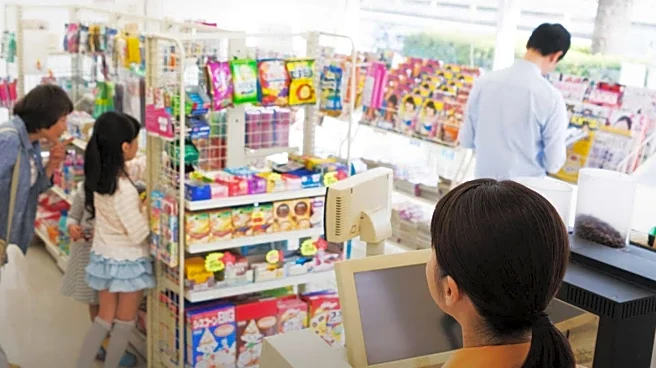What is the story about?
What's Happening?
Reflective practice, a tool widely used by healthcare professionals such as psychologists, nurses, and doctors, is being advocated for inclusion in pharmacy practice. This practice involves structured group sessions where professionals can process their experiences, increase confidence, improve care delivery, and reduce burnout. Despite its benefits, pharmacists, especially those in acute mental health settings, often lack access to these reflective spaces. The absence of such practice can lead to emotional disconnect, reduced confidence, and increased isolation among pharmacists. The Royal Pharmaceutical Society's 2024 Workforce and Wellbeing Survey highlighted that 87% of the pharmacy workforce is at risk of burnout, emphasizing the need for supportive structures.
Why It's Important?
The integration of reflective practice into pharmacy is crucial for addressing burnout and improving patient care. Pharmacists, who are increasingly involved in complex clinical decisions and multidisciplinary teams, face emotional demands similar to other healthcare professionals. Without reflective practice, pharmacists may internalize stress, affecting their interactions and patient care. The lack of such practice can lead to increased clinical errors and reduced quality of care. By adopting reflective practice, pharmacists can enhance their self-awareness, clinical judgment, and team communication, ultimately benefiting patient outcomes and their own wellbeing.
What's Next?
Advocates suggest embedding reflective practice into routine pharmacy practice, particularly in high-pressure environments like mental health inpatient settings. Proposed models include monthly or bi-monthly sessions integrated into team meetings or wellbeing initiatives, facilitated by trained professionals. Flexible, drop-in models or small peer-led groups could accommodate pharmacists' varied schedules and provide safe spaces for reflection. Pharmacy leaders are encouraged to allocate time for reflective practice as a core component of professional development, ensuring psychological safety and voluntary participation.
Beyond the Headlines
The push for reflective practice in pharmacy highlights broader cultural shifts within the profession. Historically seen as solitary and task-focused, pharmacy is evolving to recognize the emotional demands of healthcare provision. This shift challenges traditional perceptions and emphasizes the importance of psychological support structures. Reflective practice not only aids professional growth but also fosters a culture of openness and support among pharmacists, moving away from the 'resilient pharmacist' stereotype.















